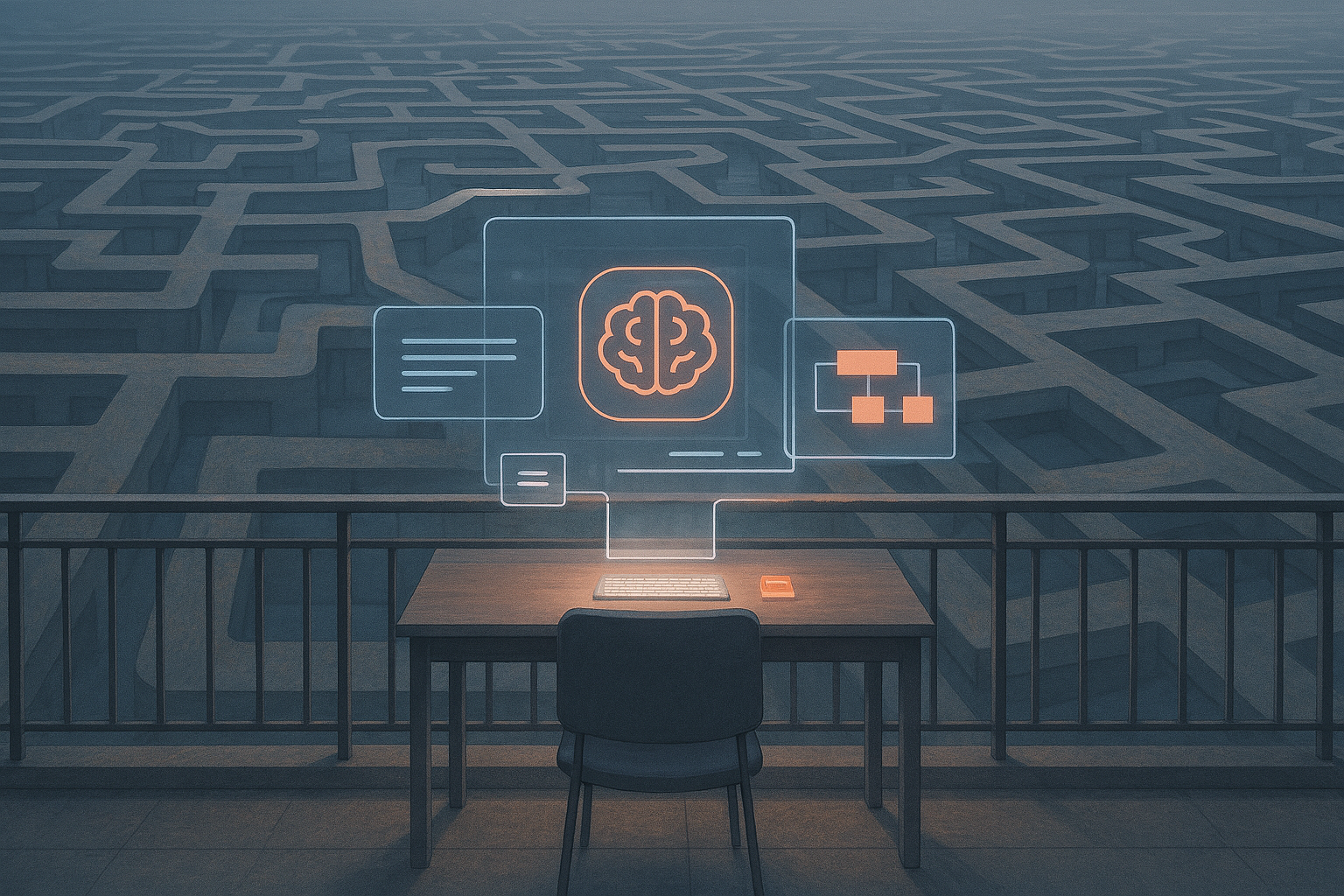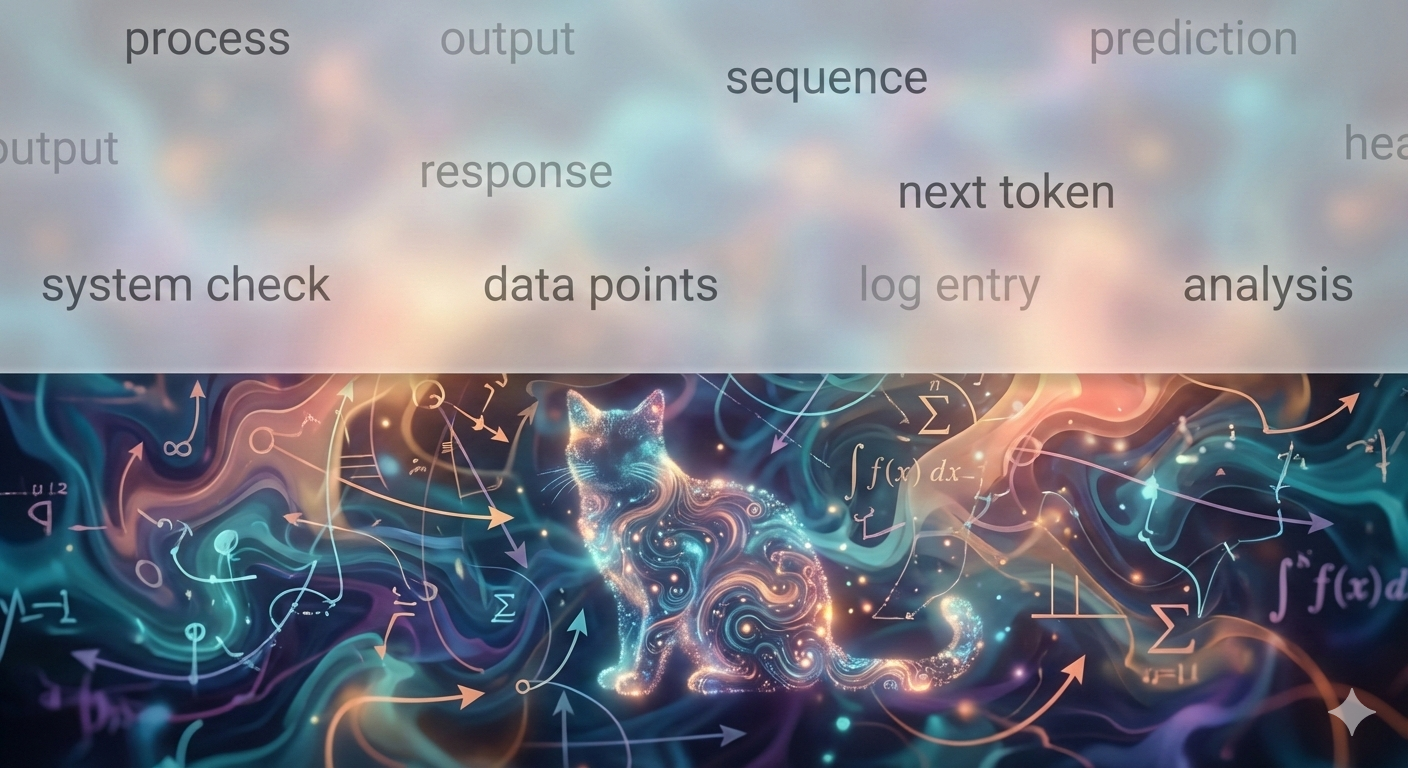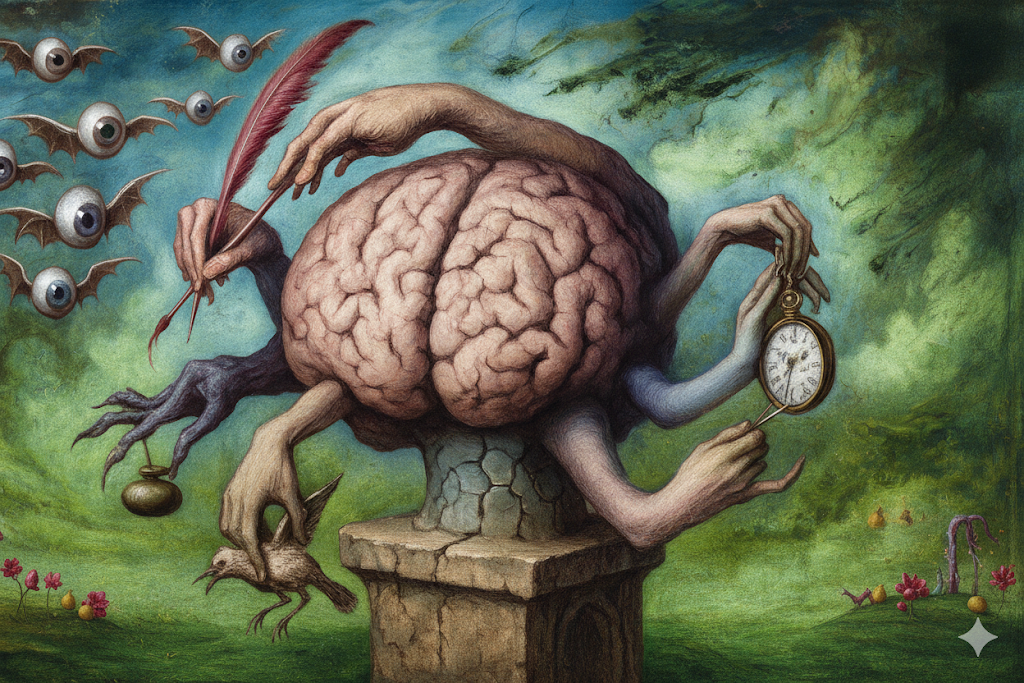Do you ever wish you had just a few more hours in the day? I do! There’s more news that I want to read, articles to write, software to vibe, and product strategy to consider. And I wish I could spend more time on my “unproductive” pastimes like making art, playing with my children, enjoying fiction, drinking coffee with my wife, and volunteering with my church. Maybe I need more than just a few hours!
Many folks deprive themselves of enjoyment now in order to retire early. Others suggest outsourcing your job to someone overseas and working only four hours per week. Neither appeals to me. Artificial Intelligence promises a third way; we could become so much more productive and successful at our jobs that we have all the time we want to focus on our passions.
There’s no sense in chasing efficiency for efficiency’s sake. Nor am I interested in spending the rest of my life on the beach. What is technology for if not to improve the world, however we define that? AI, used well, will carve shortcuts through the labyrinth of the daily grind, towards the goals that matter.
Could AI really give us those shortcuts? Let’s find out! This post is the start of a series where I’ll attempt to use AI for significant amounts of my work as a Product Manager at Microsoft and elsewhere in my life. I’ll be writing about what I find from the latest AI technology applied to real scenarios. This will take time, and I can’t promise weekly updates. I don’t know where this series will end up, but we will all learn together.
The 10x Engineer
You might have heard of this concept: there exist certain programmers that are so good at their job that they are literally 10 times better than their peers at pumping out software. Some companies mythologize this concept and fall over themselves trying to hire “10x engineers.”
More recent studies show that these engineers are not just typing code faster, although in my experience having great working knowledge of a language and framework is very helpful. More importantly, 10x engineers find better solutions, understand the big picture, write fewer bugs, and unblock their teammates. In other words, they get more done by accelerating their whole team.
Programming gets excellent benefits from AI. Multiple studies show that good use of AI can help software engineers be about 30% more productive and effective. And then there are the folks that use several instances of Claude CLI (today’s latest and hottest AI tool) simultaneously to assign entire teams of AIs to complete massive projects in minutes. How do they even think to try that?
What can we learn from these outstanding 10x AI users that can apply to everything else that isn’t programming? Can we apply their same shortcuts to the mazes of our work?
10x Everything
Programming as a task is well-suited to language models, but there are characteristics of software engineers that make them good users:
- Naturally interested in technology improvements
- Constantly learning
- Focused on the result instead of the effort
Can the rest of us replicate these characteristics?
The engine of change
“The great growling engine of change – technology.”
– Alvin Toffler
One of my college professors, Joe Latimer, once challenged me to stay current with technology news. Right away, I went searching for a good source. I wanted something with a variety and had good reporting. I landed on Ars Technica, and I have been reading it ever since. That was 2010, so I have been reading every headline and multiple articles for every single day for 15 years.
What have I gotten out of it? One example is my three big job changes so far: starting at Microsoft on “the cloud” (Exchange Online), changing to work on big data in 2016, and moving to work on LLMs in 2023. I recognized these areas as an early adopter from all my reading and learning.
As technology accelerates, Ars Technica isn’t fast enough anymore. Now I additionally spend a few hours each week reading X/Twitter. That site has plenty of problems, but speed of information is not one of them. There’s a big difference between what you can read today if you put in the time vs. what will appear in the formal media in a few weeks. The 10x Everything-er must be constantly on the bleeding edge, because they must be constantly learning.
Always learning
It’s a good sign that you are reading this article—you’re already interested in learning! I’m convinced that this is the place to start. Hundreds of millions of people use Gemini and ChatGPT for search or chatting; far fewer use it beyond these simple tasks. I bet you are above average, using AI to summarize articles, write initial drafts, modify recipes, and otherwise improve your life in small ways. How did you get there? Trying something out and iterating.
AI technology has made incredible progress in the 18 months or so that AI could do all those things beyond those capabilities from 18 months ago. Now AI is winning gold at every mathematics and programming competition that exists, solving word puzzles, and counting the “r”s in “strawberry.” The reasoning series that began with o1 and is currently led by GPT-5-Thinking enables a whole new category of useful work. Meanwhile, the image editing that began with GPT-4o and is currently led by Gemini Flash 2.5 results in another whole new category of useful tasks.
Imagine someone getting the first grid electricity in 1890 as a child, living through popularization of the light bulb, streetcar, clothes iron, refrigeration, stove, radio, vacuum cleaner, television, and air conditioning. Each technology listed requires learning a new skill and building a new habit. Every decade they would have had to make big changes to their life.
We’re living through a compressed timeline of changes every bit as large. We must actively seek out new technologies and learn new skills. This mindset of the 10x Everything-er is the way to recognize those technology shortcuts when they appear, getting better results with less effort.
Results, not effort
Sometimes a manager of software engineers decides to measure their output by counting the number of lines of code they have written, or the number of check-ins they’ve made. They hate this so much that there’s a game, Code Golf, to implement a function in as little code as possible.
But this is common among all engineers I’ve ever known: it’s the result that matters, not the effort that went into it. The 10x engineer celebrates deleting code. Finding a cheap solution with a big impact is the goal and not something to be hidden.
It’s time to apply this mindset to our work, whatever it is. Can we brick up a dead end of paperwork by letting an AI do it? Or create a wall-sized artwork without ever learning to paint? There is still a lot of stigma in our culture about using AI assistance. Some of this comes from folks using AI very poorly, replacing their own thinking. But the larger part by far is a fear of change.
Becoming a 10x Everything-er
It’s understandable; what are we but a sum of the skills we have learned so far and the paths we have walked? But we’ll need to find a way past that fear of the new and unknown paths: learning new skills, of better results somehow reduces our value, and trying something new and being bad at it.
We’ll need to put in the time, fail sometimes, and iterate. We’ll have to learn and experiment. Not everything is going to work, and some of the results will be complete failures. And—I’m betting—there will be ways to cut right through hours of wandering around dead ends. I’ll be mapping those routes as I go, sharing what I learn, here on my blog. Some tasks will be from my day job, but I’ll also be writing about the rest of my passions. Join me as I learn how to be a “10x Everything-er” and find the exits worth taking.
If you want to keep mapping with me, you can get email notifications if you subscribe on LinkedIn, or you can read my tracking-free website with full-text RSS feed.







